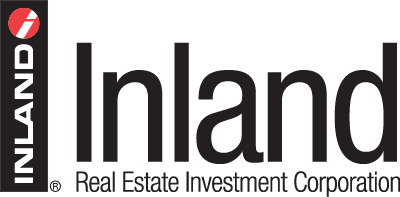The Delaware Statutory Trust (DST) has become an increasingly important part of the financial planning discussions advisors have with their clients. While not every client owns income producing real estate or is executing a 1031 exchange, many do fit the profile and have integrated DSTs into their financial plans for a multitude of reasons. Before discussing how you can use DSTs to grow your practice, let’s review several of the key benefits they afford investors:
DST Benefits
- Tax Deferral – Perhaps the most important benefit of a DST is that its structure complies with Internal Revenue Code (IRC) Section 1031 exchange rules. This means that investment property owners have the ability to execute a 1031 exchange, which allows for investors to potentially defer capital gains tax on the appreciated value of a property looking to be relinquished.
- Diversification – Investors can own fractional interests in a single property or portfolio of properties. By dividing their investment among multiple types of DSTs, investors gain a more diversified real estate portfolio across geography and property types.
- No Management Responsibilities – The DST is the single owner and agile decision maker on behalf of investors. This alone, can be an attractive benefit for owners tired of dealing with the headaches of property management.
- Institutional-Quality Property – Most real estate investors can’t afford to own multi-million-dollar properties. DSTs allow investors to acquire partial ownership in properties that otherwise would be out of reach.
- Estate Planning – All 1031 exchange investments receive a step-up in cost basis, so the investor’s heirs will not inherit capital gain liabilities. It also provides heirs with professional real estate management versus the burden of hands-on management.
- Limited Personal Liability – Loans on DST investments are non-recourse to the investor. The DST is the sole borrower.
DSTs and Growing Your Practice
Now, let’s discuss why DSTs are often an important part of a financial advisor’s practice. To begin, one of the most intriguing aspects of the DST is that its structure enables advisors to potentially grow their AUM by securitizing assets (real estate) that often represent a significant amount of a client’s overall net worth. A DST can help reveal real estate assets to advisors that may not be normally visible.
Utilizing a DST in a 1031 exchange creates an opportunity for advisors to educate clients about this unique investment structure, displaying their broad knowledge about other investments beyond just stocks and bonds.
Another important benefit for advisors using DSTs in their practice is the ability to organically expand their centers of influence (COIs) significantly. That group of new COIs generally includes CPAs, Attorneys, Real Estate Brokers and Qualified Intermediaries (QI).
These are the professionals who actively work on 1031 exchange transactions with their clients. You, as the financial advisor, however, are the only professional who can offer the DST as a securitized investment for a 1031 exchange replacement property. This puts you in a very enviable position where COIs need your expertise and assistance.
For example:
- CPAs work with clients who frequently have investment property or need passive income options that advisors can assist with.
- Real estate brokers often work with clients who need to sell highly appreciated property. This generates new listing opportunities but also opens reinvestment opportunities for advisors.
- Qualified intermediaries are a critical and mandatory part of a 1031 exchange transaction. Many of the QI’s clients may have a need for a passive replacement property or may have been unsuccessful deploying all sales proceeds. Advisors stand ready to help.
- Attorneys assist clients with legal matters related to property structuring and may help position assets when providing advice on estates. Strong relationships with trusted advisors are essential for attorneys to fully service client needs.
DSTs are also an important tool for financial advisors when addressing estate planning challenges with clients who hold investment properties. For example, older clients may have accumulated several rental properties, only to find out their children or other beneficiaries aren’t interested in managing real estate.
This may force tough estate planning choices like selling these properties (and incurring large tax obligations on gains so as not to pass the burden onto heirs) or simply transferring the properties to heirs and leaving the decisions to them after the property owner has passed on.
Even worse, disputes often arise among heirs who’ve inherited business-use real estate, with different opinions often driving long-standing wedges in family relationships. DSTs, because they allow for fractional ownership, can help ease these anxieties and avoid conflicts. Once the original investment properties are sold and invested in DSTs, interests can be allocated to heirs, allowing each to do as they desire going forward.
We hope this discussion helps your understanding of the Delaware Statutory Trust and how this investment structure may be advantageous in the financial planning process for your clients -- allowing you to potentially grow your AUM, possibly reach more prospects and ultimately elevate your standing in the industry. Feel free to also download our free guide to Utilizing DSTs in a 1031 Exchange.




